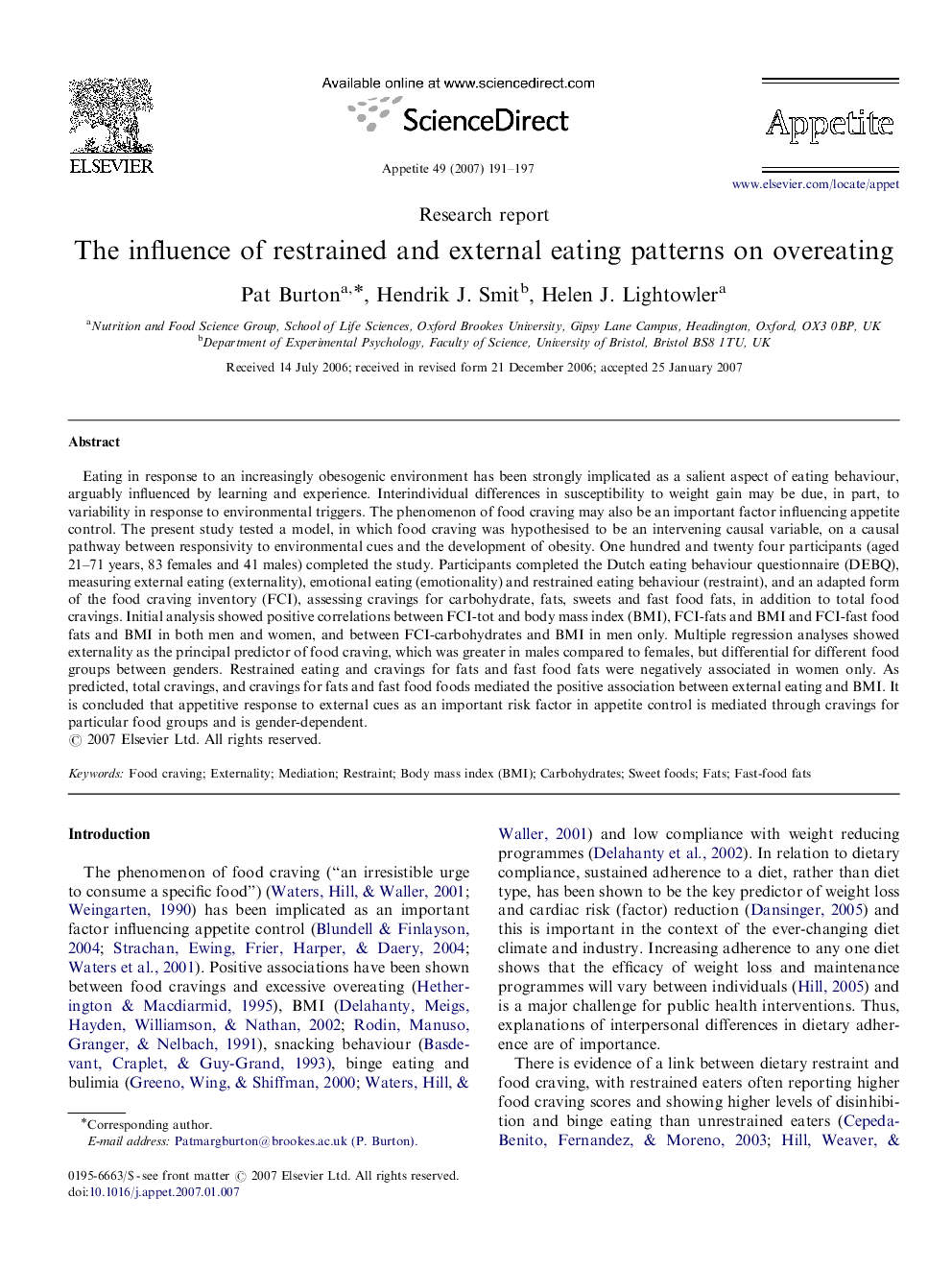| کد مقاله | کد نشریه | سال انتشار | مقاله انگلیسی | نسخه تمام متن |
|---|---|---|---|---|
| 941612 | 924912 | 2007 | 7 صفحه PDF | دانلود رایگان |

Eating in response to an increasingly obesogenic environment has been strongly implicated as a salient aspect of eating behaviour, arguably influenced by learning and experience. Interindividual differences in susceptibility to weight gain may be due, in part, to variability in response to environmental triggers. The phenomenon of food craving may also be an important factor influencing appetite control. The present study tested a model, in which food craving was hypothesised to be an intervening causal variable, on a causal pathway between responsivity to environmental cues and the development of obesity. One hundred and twenty four participants (aged 21–71 years, 83 females and 41 males) completed the study. Participants completed the Dutch eating behaviour questionnaire (DEBQ), measuring external eating (externality), emotional eating (emotionality) and restrained eating behaviour (restraint), and an adapted form of the food craving inventory (FCI), assessing cravings for carbohydrate, fats, sweets and fast food fats, in addition to total food cravings. Initial analysis showed positive correlations between FCI-tot and body mass index (BMI), FCI-fats and BMI and FCI-fast food fats and BMI in both men and women, and between FCI-carbohydrates and BMI in men only. Multiple regression analyses showed externality as the principal predictor of food craving, which was greater in males compared to females, but differential for different food groups between genders. Restrained eating and cravings for fats and fast food fats were negatively associated in women only. As predicted, total cravings, and cravings for fats and fast food foods mediated the positive association between external eating and BMI. It is concluded that appetitive response to external cues as an important risk factor in appetite control is mediated through cravings for particular food groups and is gender-dependent.
Journal: Appetite - Volume 49, Issue 1, July 2007, Pages 191–197